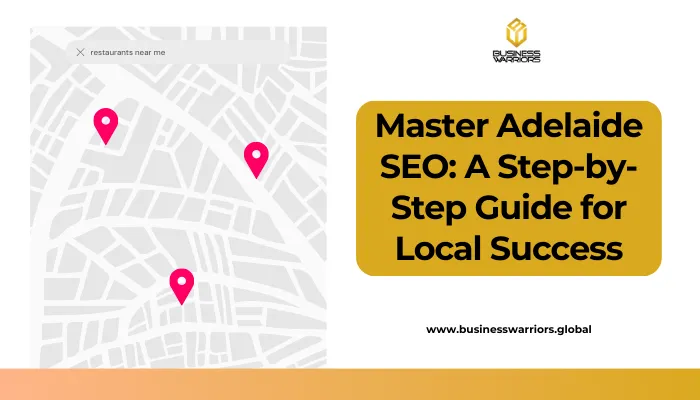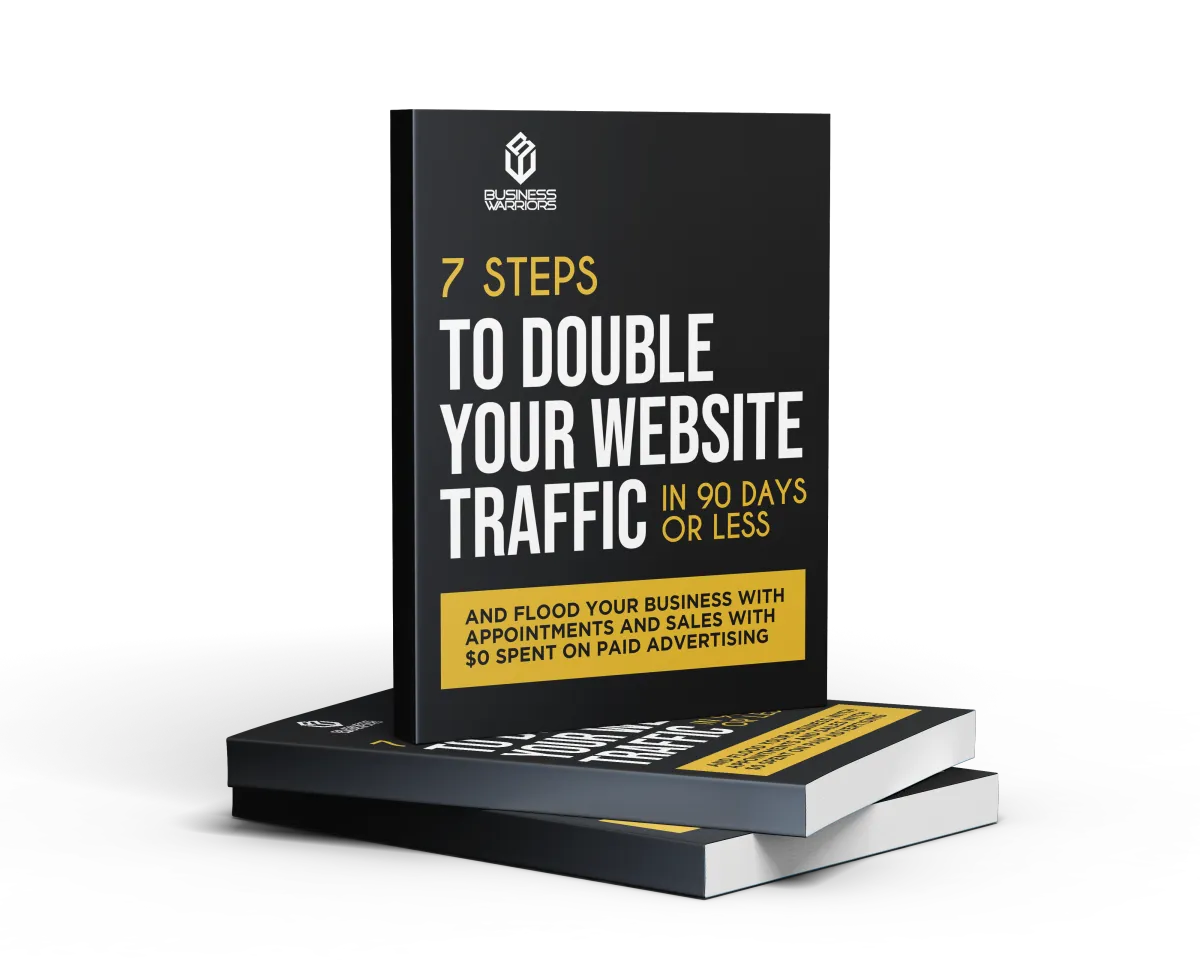Blog

Master Adelaide SEO: A Step-by-Step Guide for Local Success
As a local business owner in Adelaide, mastering search engine optimisation (SEO) can be the key to driving more traffic, leads, and sales from potential customers in your area. With so many competitors vying for the same online real estate, staying ahead of the curve with a solid Adelaide SEO strategy is crucial.
In this comprehensive guide, we'll walk you through a step-by-step process to help you dominate the local SEO landscape in Adelaide. From conducting keyword research to building local citations and earning high-quality backlinks, we've got you covered. Let's dive in!
Step 1: Optimise Your Google Business Profile
Optimise Your Google Business Profile Your Google Business Profile (formerly Google My Business) is the foundation of your local SEO presence. Ensure that your listing is accurate, complete, and optimised with the following steps:
Claim and verify your business listing
Enter complete data (business name, address, phone number, hours, etc.)
Choose the correct business categories
Add high-quality photos and a virtual tour
Encourage customers to leave reviews
A well-optimised Google Business Profile signals to Google that your business is legitimate, active, and relevant to local searchers.
Step 2: Conduct Thorough Keyword Research
Conduct Thorough Keyword Research Identifying the right keywords is crucial for your Adelaide SEO success. Focus on localised keywords that include your primary keywords along with "Adelaide" or relevant suburb names. Examples:
"Plumber Adelaide CBD"
"Best hairdresser Norwood"
"Landscaping services Glenelg"
Use keyword research tools like Google Ads Keyword Planner, Semrush, or Ahrefs to find high-volume, relevant keywords with moderate competition. Sprinkle these keywords naturally throughout your website content, meta tags, image alt text, and more.
Step 3: Optimise Your Website for Local SEO
Optimise Your Website for Local SEO Once you've identified your target keywords, it's time to optimise your website for local searches. Here are some key elements to focus on:
Add your name, address, and phone number (NAP) to your website's footer
Create location-specific pages or blog content (e.g., "Our Adelaide Plumbing Services")
Optimise title tags and meta descriptions with local keywords
Ensure your website is mobile-friendly and loads quickly
Use schema markup to highlight your NAP and business categories
A well-optimised, user-friendly website is essential for ranking well in local searches and providing a positive user experience for visitors.
Step 4: Build Local Citations and Listings
Build Local Citations and Listings Local citations are online listings that feature your business name, address, and phone number (NAP). Consistent NAP data across multiple platforms signals authority and relevance to search engines. Claim and optimise your listings on major data aggregators like:
Yelp
Yellow Pages
TrueLocal
Hotfrog
StartLocal
Additionally, create or claim listings on relevant industry-specific directories (e.g., Australian Bathroom Directory for plumbers). Consistency is key, so ensure your NAP data matches your Google Business Profile and website exactly.
Step 5: Earn High-Quality Backlinks
Earn High-Quality Backlinks Backlinks (inbound links from other websites) are a crucial ranking factor for SEO. For local businesses, focus on earning contextual backlinks from other locally relevant websites, such as:
Local bloggers and influencers
Community organisations and clubs
Local news outlets
Industry partners and suppliers
Create shareable, linkable assets like guides, infographics, or entrepreneurial interviews. Reach out to relevant websites and offer guest posts or content collaboration opportunities. The more high-quality, locally relevant backlinks you can earn, the better your local search rankings will be.
Step 6: Encourage Customer Reviews
Encourage Customer Reviews Online reviews play a significant role in local search rankings and can heavily influence a customer's decision to choose your business. Encourage satisfied customers to leave reviews on your Google Business Profile, as well as sites like:
Facebook
Yelp
TrueLocal
YellowPages
Respond promptly and professionally to all reviews, both positive and negative. This shows search engines and potential customers that you value feedback and provide excellent customer service.
Step 7: Track and Adjust Your Strategy
Track and Adjust Your Strategy SEO is an ongoing process, not a one-time task. Consistently track your website's analytics and search engine rankings using tools like Google Analytics and Google Search Console. Pay close attention to:
Which keywords are driving the most traffic
How users are engaging with your content (bounce rate, time on page, etc.)
Which pages or content types perform best
Use these insights to refine your keyword strategy, create more engaging content, and identify areas for improvement. A data-driven approach will help you continuously optimise your Adelaide SEO efforts for maximum impact.
By following these step-by-step guidelines and staying committed to your local SEO strategy, you'll be well on your way to dominating the search engine results and driving more leads and sales for your Adelaide-based business.
WHAT WOULD YOUR RETURN ON INVESTMENT LOOK LIKE USING OUR DIGITAL MARKETING VORTEX METHOD TO YOUR BUSINESS?
GET THE DIGITAL MARKETING AGENCY SECRETS: 7 STEPS TO DOUBLE YOUR WEBSITE TRAFFIC IN 90 DAYS OR LESS






